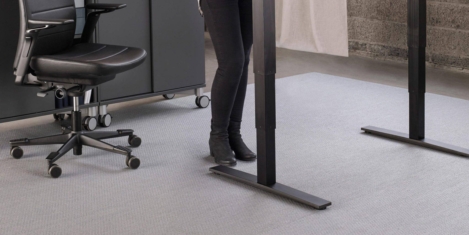October 10, 2017
Standing to work may be as good for our cognitive performance as it is our physical wellbeing
 Before we begin, the usual disclaimer that sitting is definitely not the new smoking and standing to work for long periods is just as bad as sitting. Having said that, a new study published in the Journal Psychological Science carried out by researchers at Ariel University and Tel Aviv University suggests that standing to work may improve cognitive performance as well as physical wellbeing. The study of 50 students carried out by Yaniv Mama, David Rosenbaum and Daniel Algom found that the mild stress associated with the effort of standing up improved the ability of participants to cope with simple mental tasks.
Before we begin, the usual disclaimer that sitting is definitely not the new smoking and standing to work for long periods is just as bad as sitting. Having said that, a new study published in the Journal Psychological Science carried out by researchers at Ariel University and Tel Aviv University suggests that standing to work may improve cognitive performance as well as physical wellbeing. The study of 50 students carried out by Yaniv Mama, David Rosenbaum and Daniel Algom found that the mild stress associated with the effort of standing up improved the ability of participants to cope with simple mental tasks.




































October 19, 2017
How our smartphones stop us from living in the moment
by Joelle Renstrom • Comment, Technology, Wellbeing
(more…)